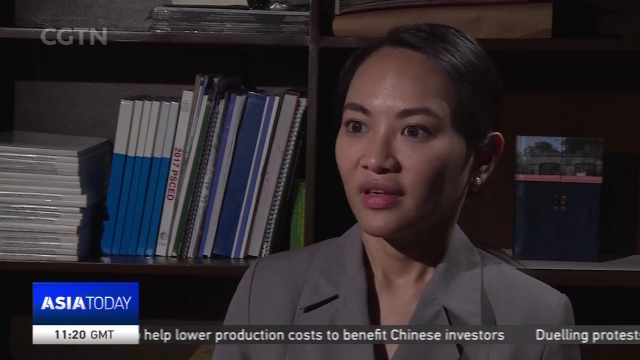
19:44, 10-Mar-2019
Online Child Abuse: Cryptocurrencies help growth in online child abuse
Updated
19:40, 13-Mar-2019
02:31

There's been an alarming growth in the sexual abuse of children on the Internet in the Philippines. A recent report blames the rise of encrypted payment systems and cryptocurrency. Our correspondent Barnaby Lo reports.
When Zia was 11 years old, one of her aunts lured her into posing nude for foreign clients. She made four US dollars, but she said she did it out of fear.
"ZIA" CYBERSEX VICTIM "I knew there was something wrong but I thought I was defenseless so I just did what was told."
Zia kept it a secret. But five years later, authorities found her naked photos during a raid in the Philippine capital Manila.
"ZIA" CYBERSEX VICTIM "I was afraid that if people find out, they'd think I'm bad or that I may even be imprisoned."
Zia says she gained her self-worth back after a year of post-traumatic interventions at the Visayan Forum Foundation, an organization that helps abused women and children, but law enforcers continue to play a cat and mouse game with online predators.
BARNABY LO MANILA "The last time I was here in shelter was five years ago, and back then, there were dozens of victims here, many of them cybersex victims. You know, I wish I could say that there's no need anymore for this kind of shelter, but today, the same number of victims remain here."
The Philippines is considered the epicenter of the child cybersex trade, with the government getting at least 3,000 reports a month. One of the main challenges is the growing knowledge of cybersex perpetrators of the Internet, particularly in what's known as the dark web. A recent study also revealed the possibility of cryptocurrency as a form of payment.
EMMELINE AGLIPAY-VILLAR JUSTICE UNDERSECRETARY "Even if they commit a crime, pay for these photos, for instance, they can disappear after, not be identified. There would probably be a footprint, but it leads to a dead end."
That doesn't mean authorities and advocates are giving up, however. In fact, two of the girls we interviewed in 2014 just scored a conviction. Both of them are back in school and are helping out more recent victims, proving that they're no longer victims, but survivors.
Barnaby Lo, CGTN, Manila.

SITEMAP
Copyright © 2018 CGTN. Beijing ICP prepared NO.16065310-3
Copyright © 2018 CGTN. Beijing ICP prepared NO.16065310-3